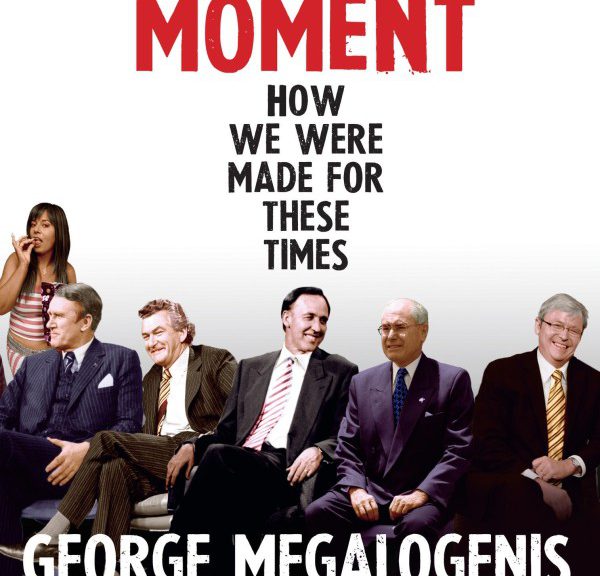George Megalogenis in his award winning book The Australian Moment, is trying to address the question of whether or not Australia, a country of 23 million people that produces only 2 per cent of the world’s gross domestic product, can become a global role model.
By overviewing the history of Australia in the last 40 years, Megalogenis is telling a story that attempts to explain how Australia managed to escape the Global Financial Crisis (GFC) and other recent crises, and whether or not this country can be “the last best hope on Earth” as Abraham Lincoln described his own country back in the 19th century.
George Megalogenis answers the question that he poses to himself and his readers in the affirmative. Yes, we are in danger of becoming a great country. Also, he is of the opinion that Australia can be the West’s last best role model, provided that the country sustains its growth and has good leadership.
His parting words are: “The present day only feels uncertain because both sides of politics have been coasting intellectually for at least ten years. The social reforms of the 1970s and the economic reforms of the 1980s and 1990s were sufficient to get us through the GFC. But without a new generation of leadership that can tap Australia’s willingness to continue to change, the Great Escape will be a comment on a successful past, not the confirmation of Australian greatness.”
The question of leadership in politics, in business, in education, in media and elsewhere is of the utmost importance for any nation, including Australia.
In the western world though, we tend to forget that leadership and power, especially nowadays, is dispersed and does not reside only in parliament, or in the public sphere. Power and effective leadership in countries such as modern day Australia can be found in front but also behind the scenes. Power and leadership can be exercised in corridors and lobby rooms, in restaurant tables and first class flights, on television and iPad screens, by national and multinational interests.
Representative democracy, political leadership, and official institutional power in 2014 are not as pervasive and or as important as they used to be.
Formally, elected governments can run a country and can define the parameters of public space and public life as well as national outcomes.
However, powerful private interests, individual and collective, can also determine quite effectively the scope and the influence of public engagement and governance.
The issue for Australia in 2014 and beyond is not only whether or not Tony Abbott and the Coalition government can improve their performance, or if they can become more responsive to the needs and the expectations of the entire nation rather than those of their hard core supporters and voters.
The issue is if other important sources of diachronic power in this country such as the media barons, the Mining Council, the Business Council, educators, religious leaders and leaders of professional associations, or possibly others with diminishing power, such as trade union or community leaders, can find a common understanding and a common ground about the present and the future challenges that Australia and its people will have to face.
There are a number of big issues that need to be addressed by all power brokers on the land if Australia is to start talking about its “greatness”.
Do we need to have a social safety net, aiming at retaining social cohesion, by looking after the basic needs of those fellow Australians that cannot be looked after by our economy? Do we need to broaden the taxation base in a more equitable way? Is a more enriched public debate needed in this country, in a much more inclusive and wider public space? Do we need to have powerful public institutions, or public organisations such as the CSIRO or the ABC that can co-shape the present and the future directions of this country?
These are the big issues that the public and not so public leadership in Australia has to address, always in conjunction with the broader community, if we are to be hopeful and optimistic about the future or the potential of this country.
Advertisement
Leadership in Australia
In his book, George Megalogenis asks if Australia, a country of 23 million people that produces only 2 per cent of the world’s GDP, can become a global role mode









